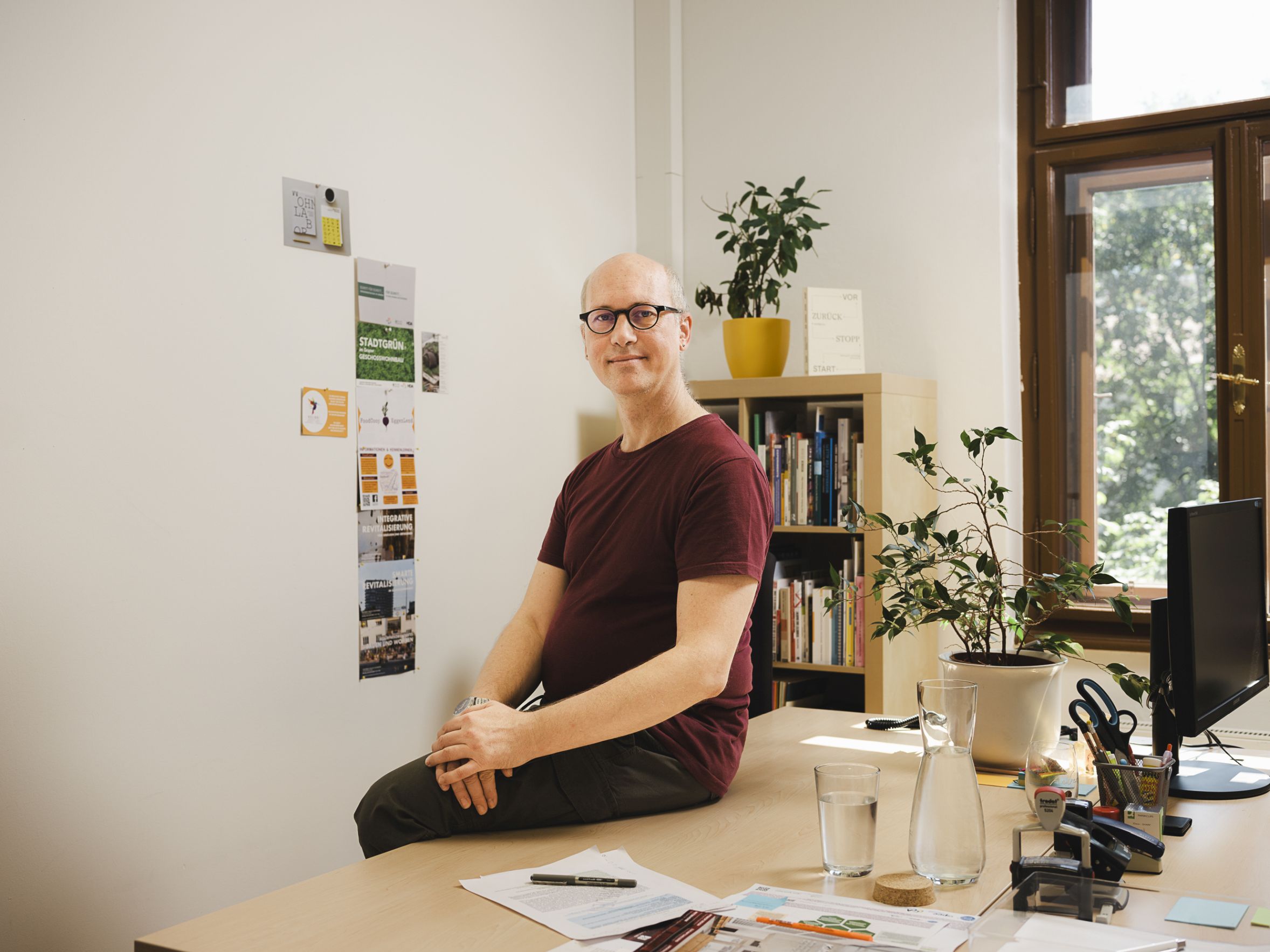Questions for...
Anke Strüver - Professor of Human Geography
What exactly does a professor of human geography research on?
As a professor of human geography with a focus on social-geographical urban research, I deal with social structures and spatial productions in everyday life that are (not) linked to social justice and ecological sustainability. While the necessary measures for urban transformation in times of care, energy, biodiversity and climate crises are now known, there is a lack of implementation. However, in order to avoid blaming the individual for this, I deal with the transformation of structural conditions at the local level based on embodiment and subjectivation processes along the themes of health, exercise, nutrition and digitalization.
What do you find particularly socially relevant about your work?
For me, the social relevance lies in a fundamental skepticism of technology-driven and/or profit-driven solutions to the big and small problems of our time, as without social change, no socially just ecological sustainability and future viability can be achieved - neither globally nor locally. For teaching, this means constantly working with local examples, and in Graz and at the University of Graz we see so many problems, but also solution strategies directly on the ground. A professor of socio-geographical urban research therefore often "just" goes out and observes!
Dr. Andreas Exner
What do you find particularly socially relevant about your work?
The multiple and increasing crises of our time require sustainable answers. A socio-ecological transformation is a complex process. Many powerful resistances hinder necessary changes. A key area of my work is therefore dedicated to the transformation of economic structures and processes towards a social economy. This involves companies that prioritize social or ecological goals, operate in a spirit of solidarity and are organized democratically or in a participatory manner. There are many examples of this. In Austria in particular, however, only a few have so far given the social economy the attention it needs for successful transformations. I integrate this perspective with research and practical activities on urban development. I also focus on the theoretical foundations of transformation. Because under the conditions of the new climate regime, in the face of advancing destruction and with the end of many hopes for a reflexive modernity and sustainable development, perspectives are needed that can offer orientation.

What aspect of your work is particularly enriching for you?
I value the collaboration with practitioners from different areas and various political fields. Transformation processes that unfold with united forces despite all the difficulties give me particular satisfaction. I experience the connection between different social and political milieus as a source of social innovation and a contribution against increasing social polarization, which gives me hope. At the same time, a theoretical penetration of practically relevant processes is particularly important to me. Practice without theoretical understanding is like a ship without a compass. Theory without practice and empirical anchoring, on the other hand, remains a mind game. I am fascinated by questions of ontology, epistemology and social theory. I particularly enjoy crossing disciplinary boundaries and theoretical constrictions. Because then it becomes clear that new connections between ideas and practices can create those perspectives that lead further.